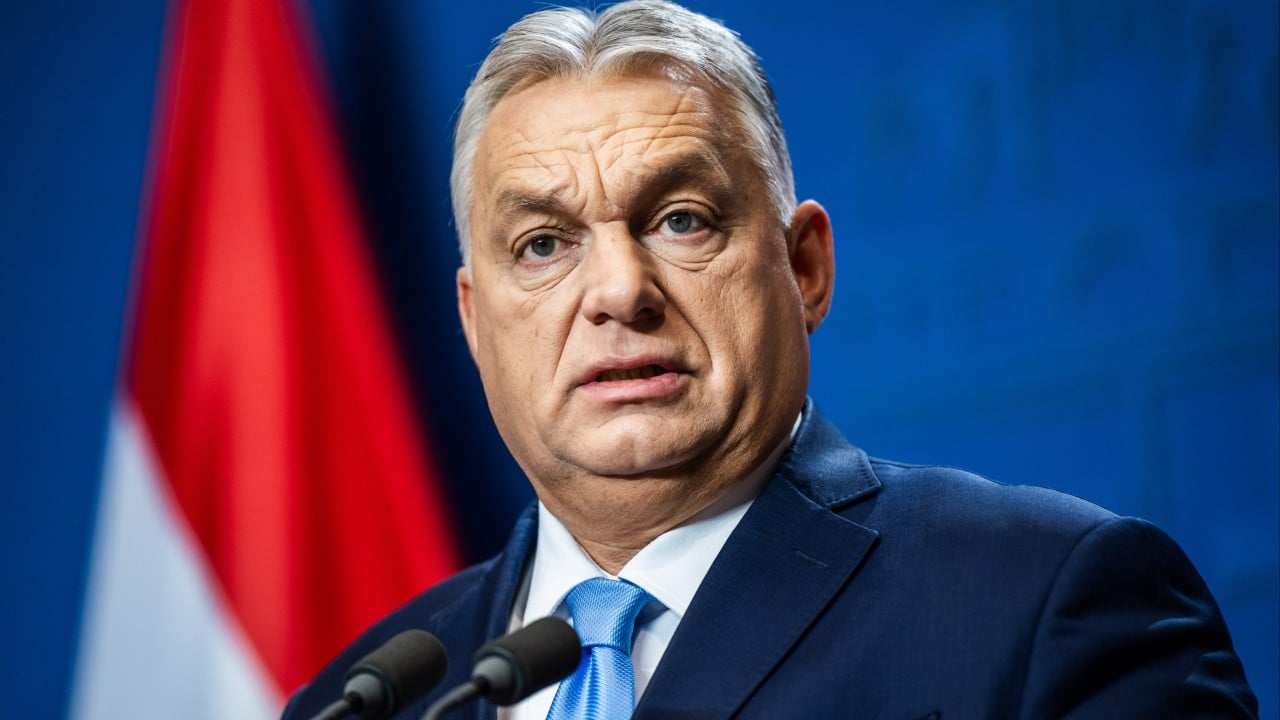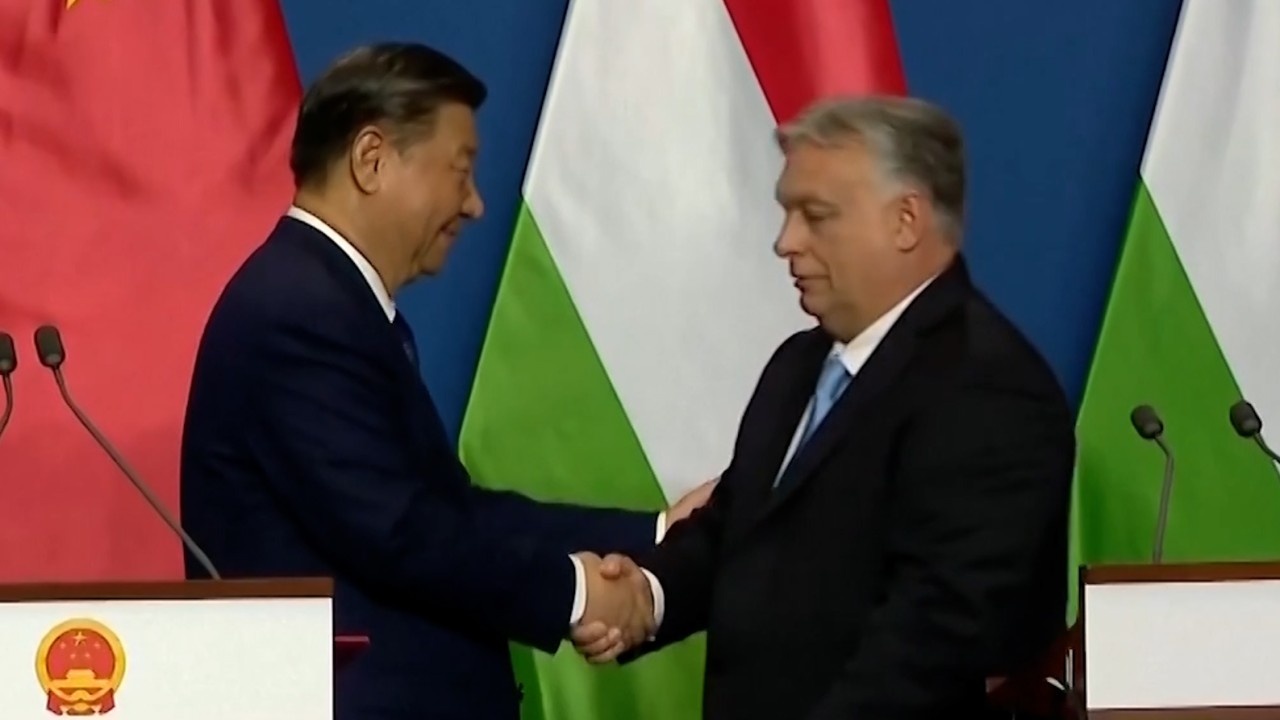Decoupling from China is a “red line” in Hungary’s relations with the United States, a deputy minister has said, in rare remarks clarifying Budapest’s thinking on its close ties with both superpowers.
Advertisement
Hungarian Prime Minister Viktor Orban has spent years cementing his position as Europe’s most pro-Trump and pro-China leader. With the US government now suggesting that its allies must choose between the two, many speculate that Budapest could find itself in an awkward position.
“Definitely not. That’s a red line for us, we’re having excellent trade relations with China, and China has become one of the biggest investors in Hungary,” said Levente Magyar, a deputy minister for foreign affairs and trade, when asked in Brussels on Thursday if Hungary was willing to decouple from China, “if that’s what Trump wants”.
The official pointed to a swathe of Chinese investment in Hungary, with research showing that 44 per cent of capital pumped into Europe in 2023 went into the country, allowing it to overtake Germany, France and Britain as the most popular destination for Chinese funds.
“We are highly over-represented, considering our population and the size of our economy. So Hungary is benefiting from these very intensive Chinese economic and trade relations. We’re not willing to give that up,” Magyar said.
EU officials have long wondered how Orban would thread the needle as superpower hostilities escalated. Several of Trump’s aides have said they want to cut Beijing out of global supply chains, and will lean on American allies to do so.
Advertisement
“Eventually, [Orban] will have to make a choice,” a senior EU official told the South China Morning Post after last year’s US election. “It’s Trump or China. We don’t know which one he would choose.”
Big Chinese companies such as CATL, the global leader in batteries, and BYD, the world’s biggest EV maker, have invested heavily in the central European country. CATL’s €7.3 billion (US$7.8 billion) plant in the eastern city of Debrecen is expected to start production this year. BYD’s Hungarian facility is also set to start producing EVs this year.


